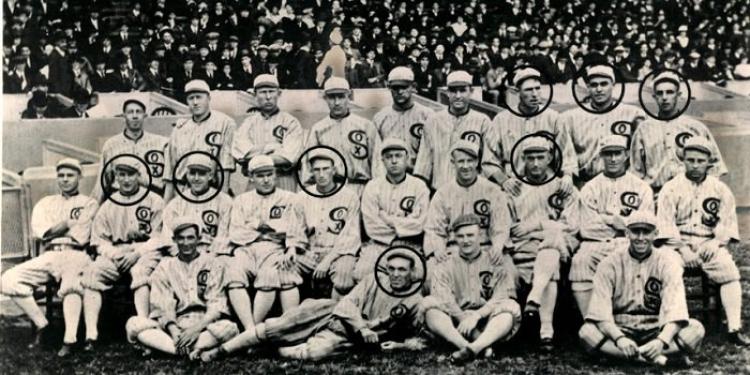A History of Gambling in America (part7)
Posted: July 26, 2015
Updated: October 6, 2017

Bookmaking became the vehicle by which all gambling was made possible
After the Civil War, US gambling laws increased to limit people from participating in what was called the “evils of society.” In that time however, peoples grip on their gambling addiction didn’t decrease. Many underground venues told hold. In the public eye the horse track represented America’s last great bastion for gambling. Out of this time rose prominent characters such as Pittsburg Phil and John “Betamillion” Gates.
• Distribution networks used by mobster proved useful for illicit bookmaking
• Arnold Rothstein was blamed for the 1919 World Series scandal
• The para-neutral machine made horse racing possible without bookmakers
Victorian morality was still in effect and crossed over into a growing reform movement in America. Also the horse tracks were insulated systems that kept gambling within its confines, corruption on all levels would ensue. The rampant bribery in the legislation led to even more laws established that would completely end all legalized gambling activity by the end of the 19th century.
Horse tracks emerged after World War I as betting goes underground

A reform movement started to take hold in America as child labor laws, sweat shops and 16-hour work days were under attack. The moralists went after prostitution and gambling. Regulatory reform attacked and gambling was part of the collateral damage. After a decade, race tracks started to reopen after World War I. Instead of written bets, much of the bets were spoken. Outside of the track, new methods of gambling were adopted by the criminal elite who were already making their livings through drugs and prostitution.
Distribution networks that were already well established could easily be used for betting. Arnold Rothstein was known for the layoff bet that would involve small time bookmakers that could cover larger bets. Often Rothstein would be called by smaller bookmakers and cover their bets. He would often cross state lines and consort with politicians in order to get out dilemmas caused by other bookmakers. If Rothstein knew the outcome of a game, no bet was too large.
As part of the biggest match fixing scandal in sports history, Rothstein was seen as the guy “who almost ruined baseball in America.” The 1919 Chicago White Sox were considered the finest team in baseball. Led by pitcher Eddie Saccatti and all-star Joe Jackson, the White Sox were also the most underpaid team in the country. To remedy that, eight players decided they would intentionally lose the World Series.
Contacting New England gambler Joseph Sullivan, the players were offered USD 100,000. Sullivan, who didn’t have the money to cover the bet, went to Rothstein for help. Rothstein was implicated with the team and they all appeared in front of a grand jury after the scandal rocked US gambling news. Mysteriously, after all of the confessions were recorded, the documents disappeared and the judge had to dismiss the case which led to the exoneration of Rothstein and the eight players.
The Federal government started to chase illicit bookmakers

As Nevada was starting to show signs of gambling formidability, race tracks were trying to gain surviving foothold. By 1933, the dismal state of the U.S. economy resulting from the great depression would lead to the re-legalization of horse racing in 12 states. Bookmakers were easily going around the anti-bookmaking laws by taking bets orally which proved to reveal little evidence of the bets or their amounts.
By the time the 1940 Kentucky Derby, a paraneutral betting machine which involved collecting bets into a large pool. Patrons are no longer playing against the bookmaker, but against other betters. By ingenious design, as wagers were placed in the paraneutral machine, the odds would be determined by the amount waged on horses. The odds would automatically be set higher for a horse fewer waged and lower for those horses with more wages placed on them.
The paraneutral tool is beneficial financially because it mathematically divided the winning pot that could easily be given taxes, owners, administration and the rest the punters. Off track bookmaking, though illegal, still had a pulse. Legislators, who were satisfied with the earning from legalized horse racing, attacked illegal bookmakers on the grounds of tax violations and racketeering with increased fervor under the suspicions that the funds from bookmaking funded other practices like prostitution.
The Federal Government investigation was into organized crime and wired bookmaking across interstate lines. Figures of notoriety such as Frank Costello and Meyer Lansky would almost gain complete control of interstate bookmaking. Tennessee Senator Estes Kefauver held televised hearings against the mob. He aspired to take part in something that would help his political ambitions while making gambling news. Unfortunately, Kefauver heard nothing but the pleas to the “fifth amendment” during testimony.












